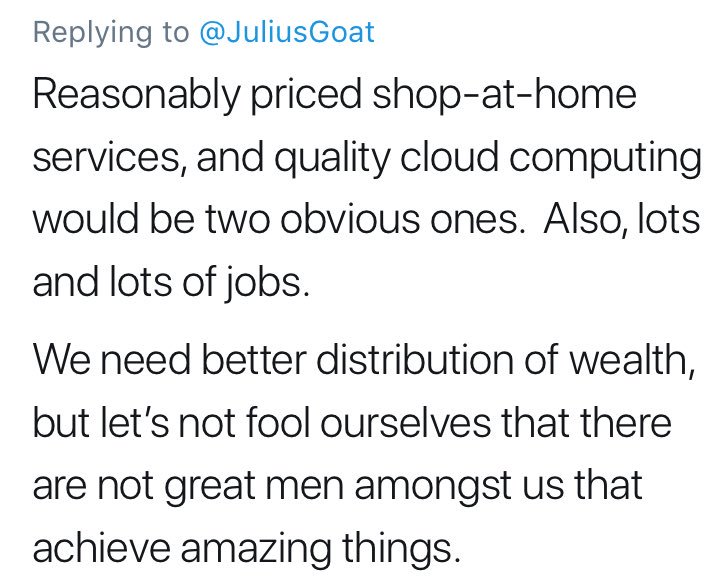What value does a society derive from having billionaires? What do they bring to the table we wouldn't have without them?
Is a net worth of $1000 million enough to motivate the brightest among us to innovate and create?
If it isn't, what does that say about the brightest and best among us? ARE they the brightest and best among us? Or are they just the brightest and best graspers?
Because we do, you know.
"We" in the broadest sense of cultural value.
We do.
What good thing does having billionaires give a society that we wouldn't have without billionaires?
And, if the answer is 'nothing' ... why have billionaires?
But having billionaires is a choice. It's a choice that derives from our shared cultural values.
I'm suggesting we consider developing new values.
I'm sure that making a world where billionaires can't happen would pose a great many challenges.
The primary challenge right now is this: we don't want to.
In this sense "we" decided, long ago, to have billionaires.
"We" can stop.
Kanye was wrong because he thought the enslaved—the only people not responsible—made that choice.
American society made that choice. Global society made that choice. Slavery was a choice that the empowered "we" made, out of a twisted value system.
"We" decided to work to end it, in large part because the enslaved insisted, with immense courage, on being included in the "we."
Slavery is still with us.
In many ways "our" values still say people are less important than money and that humanity was a function of skin color.
We think differently now than we did 500, 400, 300, 200, 100 years ago.
We can keep changing our minds.
And what *do* billionaires do for us, anyway?
I'm not vilifying him. I'm critiquing our general values, which creates phenomenons like Bezos.
Let me ask this: Is having billionaires even good for BILLIONAIRES?
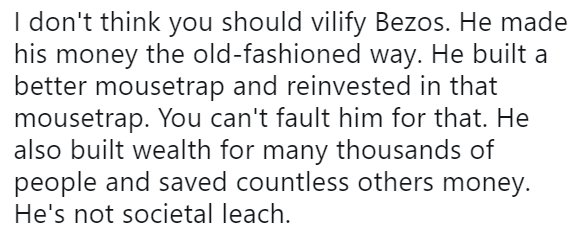
This is allegedly one of the most visionary and innovative humans on the planet. Can't think of a thing to do with all his money.
What effect does being able to literally buy Denver have on Jeff Bezos?
And hey, more power to him. That's the dream, right?
Listen:
I think it's a bad dream.
Why can't the world's most innovative man think of things to do with his money?
How is it good for those individuals to do so?
We can change this, if we want to.
But first we have to change what we want.
Sometimes I do.
Don't you?
I think it's a bad dream.
I think we all belong to one other.
I'm not saying those of us who suffer the most corrosive effects of capitalism are to blame for their suffering.
I'm just suggesting a new story to tell.
And there is an immoral arc of the universe, too, with its own bend. And people work to bend that arc.
It's important to discern which is which.
A story in which life is not earned by economic contribution, but is simply a human birthright.
A story in which violence does not redeem violence.
I just am not sure billionaires exist in a world like that. is all I'm saying. I'm not sure people would want to be billionaires in a world like that.
*Is* the net end effect good? There are some good effects I agree. But I am unready to draw such a conclusion.

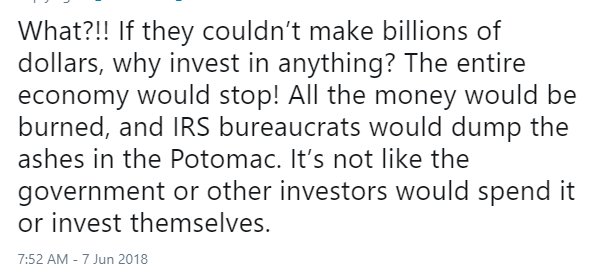
2) profits and money for social programs do not require billionaires to attain—and they needn’t be subject to one person’s discretion and conditions.
3) there is a middle ground, I think, between “billionaires” and “everything shared communism.”
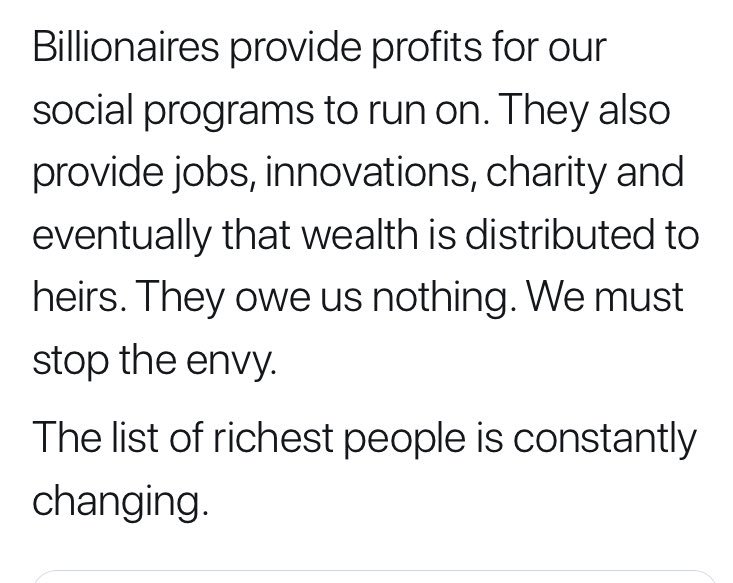
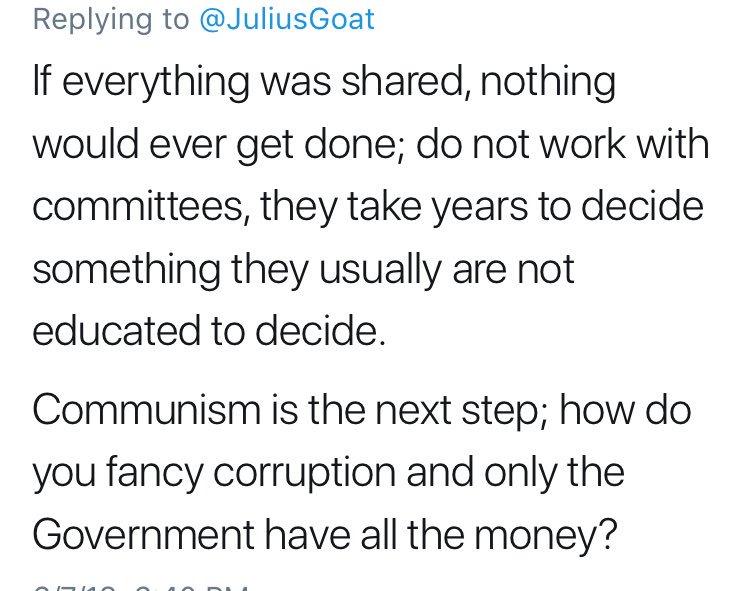
My point is, the key to finding something better is 1) wanting to find something better, 2) looking for, and 3) deliberately working to achieve it.
And I didn’t say innovation requires greed.
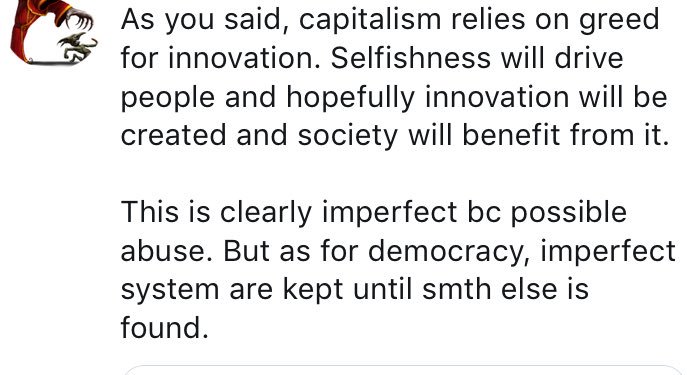
Curiosity is a commendable quality, so remain curious—particularly about your own assumptions.
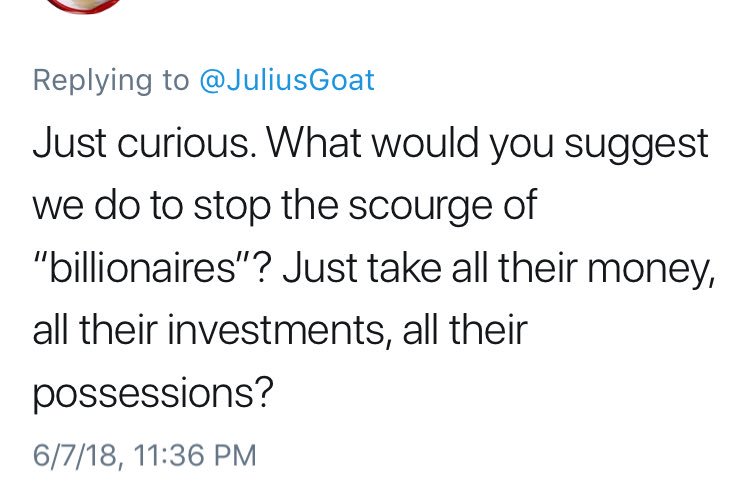
They seem an unhappy person to me, and not one upon whom I would bestow immense power or influence
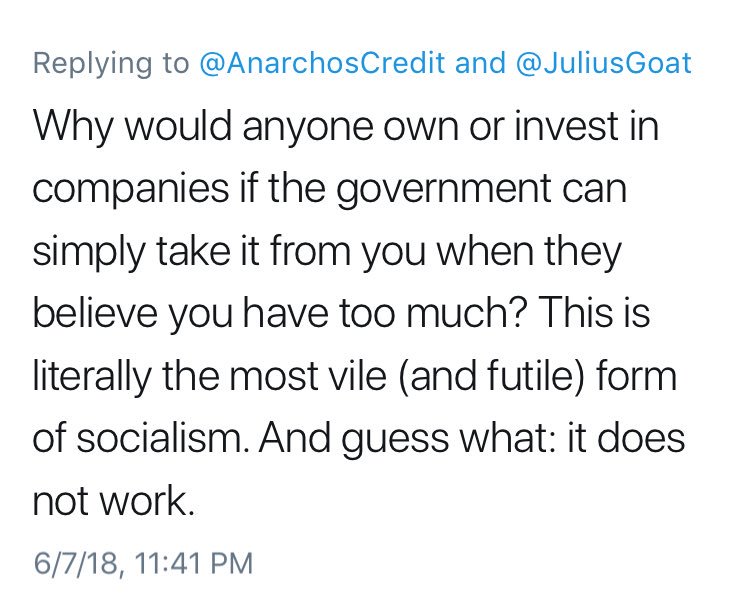
We are in control of much of what is “real.”
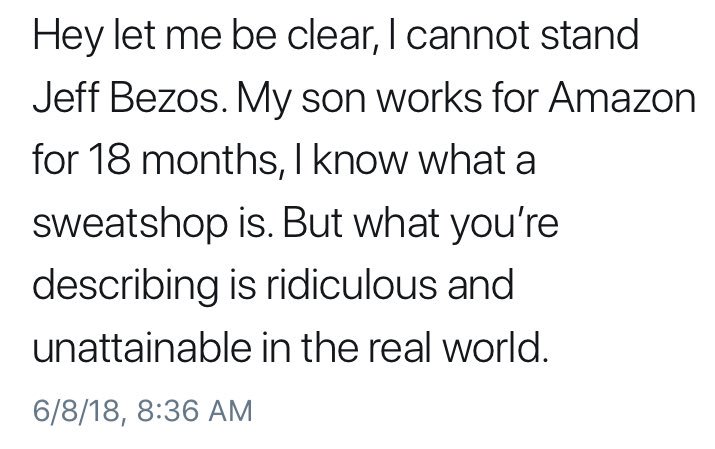
Would great people not do great things without the lure of billionaire-ism?
This rings false to me.
